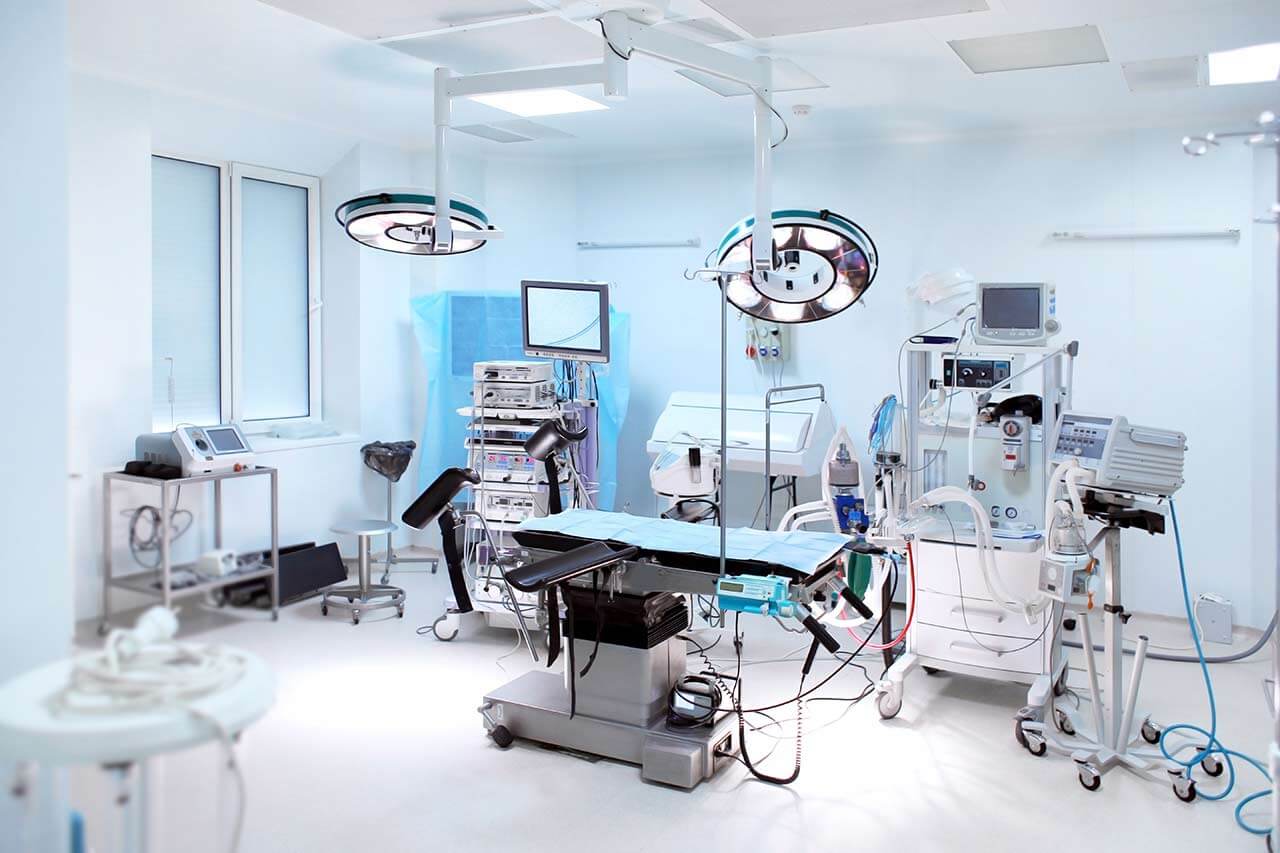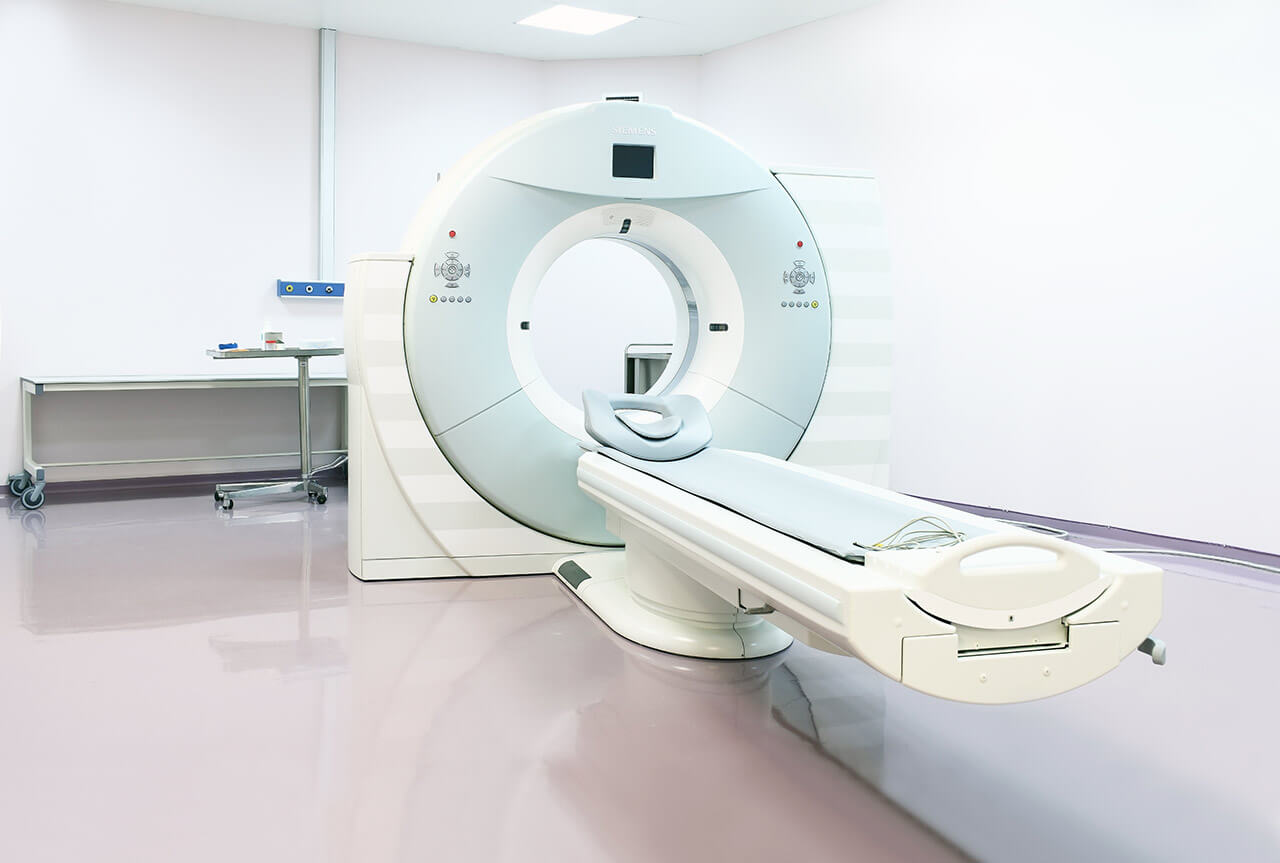
About the Department of Interventional Radiology and Neuroradiology at Asklepios Hospital Barmbek Hamburg
The Department of Interventional Radiology and Neuroradiology at the Asklepios Hospital Barmbek Hamburg offers the full range of medical services in the areas of its specialization. The department's medical team, consisting of more than 50 employees, performs high-precision imaging examinations, including X-ray, mammography, angiography, myelography, computed tomography, and magnetic resonance imaging. The results of diagnostic examinations are stored in the picture archiving and communication system (PACS), so the department's doctors and specialists from other departments of the hospital have unhindered access to the images. Whenever required, the patient can receive a disc with their diagnostic results. An integral part of the department's clinical practice is the interventional treatment of vascular diseases, including cerebrovascular conditions, oncological diseases, and chronic back pain. Interventional procedures are performed under imaging guidance, which ensures the high safety of the treatment. In most cases, they are carried out under local anesthesia on an outpatient basis. The department’s specialists devote enough time to consulting patients and talking in detail about how this or that therapeutic manipulation will be performed. Hygiene and safety standards are strictly observed in the department's operating rooms. The Head Physician of the department is Prof. Dr. med. Roland Brüning.
Technical equipment plays an important role in high-precision imaging diagnostics and interventional treatment. The doctors at the medical facility work with state-of-the-art equipment, which allows them not only to obtain high-quality images but also to ensure minimal radiation load on the human body. The department has systems for classical X-ray, two computed tomography scanners (128-slice and 64-slice), two high-performance 1.5 and 3 Tesla magnetic resonance imaging scanners, and systems for angiography and mammography. If necessary, the specialists may use contrast enhancement during imaging diagnostics. As a rule, CT, MRI, X-ray, and angiography take no more than 10-20 minutes. The examinations are absolutely painless and are most often performed on an outpatient basis.
The department also offers minimally invasive image-guided interventional treatment. The priority focuses of the department's specialization include treatment of vascular stenosis, vascular obstructions, and cancers. The department regularly performs percutaneous transluminal angioplasty to eliminate renal artery stenosis, which causes drug-resistant arterial hypertension and increases the risk of kidney failure. Percutaneous transluminal angioplasty is usually performed through the femoral artery. The doctor uses a catheter to deliver a balloon to the narrowed kidney artery and inflate it, which restores normal patency of the affected artery. A stent is implanted in the lumen of the renal artery to prevent its recurrent stenosis or obstruction. The therapeutic procedure is performed under local anesthesia.
Percutaneous transluminal angioplasty can also be performed for peripheral arterial disease of the lower extremities (obliterating endarteritis). This pathology causes narrowing of the lumen of the arteries, which results in impaired blood circulation. Before the procedure, the specialists perform digital subtraction angiography, which identifies narrowed areas in the arteries of the lower extremities. Percutaneous transluminal angioplasty allows patients with obliterating endarteritis to have sparing but, at the same time, effective treatment. It is worth noting that not so long ago, the only treatment method for the disease in its advanced stages was amputation of the lower extremity.
The department's interventional radiologists also treat patients with cancer. One of the most demanded procedures in doctors' clinical practice is transarterial chemoembolization (TACE). This treatment is indicated for patients with liver cancer (hepatocellular carcinoma) or with liver metastases in the presence of contraindications to a surgical intervention. During the TACE procedure, doctors perform embolization under angiography guidance, which is the occlusion of blood vessels supplying the tumor by injecting special emboli (microspheres) containing a chemotherapy drug. The therapeutic effect is achieved by blocking the blood vessels supplying the tumor and the local impact of the chemotherapy drug, resulting in tumor necrosis (death).
The department is one of the few medical facilities in Germany whose specialists perform the procedure of chemosaturation. This is localized chemotherapy with high doses of chemotherapeutic agents. The interventional treatment method is also used for patients with unresectable malignant liver tumors and liver metastases. The chemotherapy drug is injected directly into the hepatic artery under imaging guidance. To prevent the chemotherapy drug from entering the systemic bloodstream, a special filter balloon is also placed in the hepatic artery. Thus, the side effects of the chemotherapy drug are practically eliminated.
The team of neuroradiologists specializes in imaging diagnostics and interventional treatment of brain and spinal cord diseases. The physicians collaborate closely with neurologists and neurosurgeons to provide patients with a comprehensive approach to solving the problem. The diagnostic offer in the field of neuroradiology includes radiography, computed tomography, magnetic resonance imaging, angiography, and myelography. As for the treatment, the health facility offers lysis therapy and mechanical recanalization for stroke, percutaneous transluminal angioplasty followed by stent implantation for cerebral artery stenosis and obstruction, and interventional pain management for chronic back pain.
The department's range of medical services includes:
- Interventional radiology
- Therapeutic procedures
- Percutaneous transluminal angioplasty
- Transarterial chemoembolization (TACE)
- Chemosaturation
- Radiofrequency ablation
- Therapeutic procedures
- Interventional neuroradiology
- Therapeutic procedures
- Lysis therapy
- Mechanical recanalization
- Percutaneous transluminal angioplasty
- Pain management
- Facet joint infiltration
- Periradicular therapy
- Nerve plexus block
- Therapeutic procedures
- Other medical services
Curriculum vitae
Prof. Dr. med. Roland Brüning studied medicine in Hamburg, Freiburg, Breisgau, and Munich. In 1989, the doctor became a Research Fellow in the Department of Radiology at the University Hospital of Ludwig Maximilian University of Munich. In 1993, he became a Scholar of the German Research Foundation at the Massachusetts General Hospital at Harvard Medical School, Boston, USA. Subsequently, the professor completed his training in radiology at the Institute of Diagnostic Radiology of the Ludwig Maximilian University of Munich. In 1996, Dr. med. Brüning became a Senior Physician. In 2001, he became a professor. In 2002, Dr. med. Brüning joined the Department of Neuroradiology at the University Hospital of Ludwig Maximilian University of Munich, where he had special training in Neuroradiology.
Prof. Brüning is the author of numerous publications and his own books. His clinical interests include CT and MRI imaging diagnostics, as well as image-guided interventional therapeutic procedures.
Since November 2005, Prof. Brüning has been the Head Physician of the Department of Interventional Radiology and Neuroradiology at the Asklepios Hospital Barmbek Hamburg. He is also a Visiting Professor at the Ludwig Maximilian University of Munich.
Photo of the doctor: (c) Asklepios Klinik Barmbek





